My wife and I had been continually worried about our families in the south and I was able to take a day off from the hotel to go check on them. My friend John Bosco hot-wired an abandoned car, as was the custom in those days immediately after the genocide. When the road opened up into the lush hills that I loved, we found ourselves in a twilight country we did not recognize. The silence was near complete. Everybody was either dead or exiled. The only thing I heard was dogs barking and snarling as they fought each other to feast on human remains. Crowds of people normally line the sides of the roads in Rwanda: boys driving herds of goats; women in colorful shifts balancing baskets on their heads; elderly men carrying sticks and wearing donated T-shirts; merchants hawking batteries and leaves of tobacco on blankets spread on the ground. They were nowhere to be seen. The life of the country had been sucked away. It was like a plague from the Dark Ages had descended.
“I don’t know this place, ” said my wife. “I’m scared.”
I began to dislike the eucalyptus trees on the side of the highway. They were reminding me of the killers I’d seen from the hotel roof. I found myself scanning the brush on the side of the road for the flash of a machete or a grinning killer. We saw so many dead bodies scattered on the side of the road that we began not to see them anymore. I wanted to make conversation with my wife just to distract myself, but there was nothing to talk about that didn’t lead to a bad place, and so I fell into a reverie. I wondered how many of those dead shells I might have known in the time before, perhaps people who had come into the Mille Collines for drinks, or relatives of friends that I’d met. Perhaps I’d only passed them in the markets without looking. Whoever they were, each one was irreplaceable, as irreplaceable to the people they loved as I was to my wife, or she was to me, or us to our children. Their uniqueness was gone forever, their stories, their experiences, their loves-erased with a few swings of a cheap machete.
Ah, Rwanda. Why?
My family and I could easily have been a part of that caravan of the dead. All it would have taken was a slip of my luck, the wrong word to a general, a whim of a militia chief. Even after everything I had seen in the previous three months I felt as though I had been terribly naive. I hadn’t really grasped the true scale of the disaster, how deep it had gone, and how that membrane of protection around our hotel had been so fragile. That it had held up for seventy-six days was a miracle. With the rest of the country looking like a giant cemetery there was nothing that should have stopped those killers from wiping us out as well. We would have been like a handful of sand on a mile-long beach.
It did not ease my feeling of general anxiety at all that we were the only car on the road. There were a number of roadblocks, of course. They were manned not by the Interahamwe this time, but by the RPF. The soldiers looked at us curiously. “What are you doing out here?” they wanted to know. “Don’t you know how dangerous it is out here?” They were very suspicious of us. But they let us pass.
We arrived in my hometown after a few hours. It was as deserted as the roads had been. This was where my friend Aloise had wanted us to take refuge-the place where the mwami had taken his cows for safety during wars of past centuries. But that old myth had been broken in the past few weeks. The genocide had come here, too. More than 150 people connected to the Seventh-day Adventist Church had had the same idea as Aloise. These rural pastors and their families had come here thinking they would be protected at the college at Gitwe where I had attended school. They had all been slaughtered.
It occurred to me that if I had stayed with my earlier ambition to be a pastor, I might very well have been among them, and then killed in the same classroom where I had learned to make letters.
Things were no better in the neighboring town where my family had lived. In the commune house several dozen Tutsis had gathered under the protection of the local mayor, who had promised to shield them from the mobs of ordinary people who had taken up machetes against their neighbors. On April 18 an official had been called to a political meeting in the nearby city of Gitarama, and when he came back there was trouble. “I am no longer the person you knew, ” he allegedly said, and then put a handgun to the head of a friend of his, a man he had gone to school with and had known for more than twenty years. He shot his friend and then ordered an attack on the commune house. Those refugees who weren’t killed immediately darted into the swamps and the hills, where they spent the next two months trying to hide from the bands of bar keepers, schoolteachers, and housewives who had been told: “Do your work.”
I went to the home of my elder brother Munyakayanza and found him sitting quietly in the front room with his wife. Seeing him alive made me want to cry with gratitude. We embraced, but I could feel that his muscles were tense. His eyes darted from my eyes to the places behind my shoulder. The area around his house was usually full of life, neighbors passing back and forth, children rolling bicycle rims with sticks, and teenagers playing tussling games, but now there was nobody. Not even any cooking fires were burning. It was totally quiet.
“Our neighbors have been killed by the militia, ” he told me. He and his wife survived because they were Hutus. Now that the rebel army had driven out the militia it was not safe anymore to be of this class. In fact, it could be a death sentence. Some rogue members of the RPF had begun to conduct reprisal killings in several parts of Rwanda. Around me I could see burned-out houses where people had been roasted alive within their own walls.
“Listen, brother, ”Munyakayanza told me. “Please leave this place. The houses, they have eyes. The trees have ears.”
I decoded his message. My presence here would be noticed and was a danger to both his family and mine. I quickly hugged him again and left. My wife started to cry, and I tried my best to comfort her, but it was impossible. We now headed toward my wife’s hometown, the old Tutsi capital of Nyanza. Tatiana was so frightened she could barely speak, but we had to see, we had to go there, even though we already knew in our hearts what we would find.
Most of her family had been slain by their neighbors. Several of them had been buried in a shallow pit used for the maturing of bananas. Tatiana’s mother had been one of the sweetest, kindest women I’d ever met. She had always shared food with her neighbors in times of trouble and was always available to help look after children in their parents’ absence. She had been murdered along with her daughter-in-law and six grandchildren. The walls of her house had been knocked down. I could see some of its distinctive tiles already plastered into the walls of nearby houses. The looting had been quick and efficient.
I felt bright hatred surging up in my throat for the bastards that had done this. I am not a violent man, but if I had had a gun in that moment, and if somebody had pointed me to a convincing scapegoat, I would have murdered him without hesitation. I had saved more than a thousand people in the capital, but I could not save my own family. What a stupid and useless man I was!
I tasted, in that moment, the poison and self-hatred in my country’s bloodstream, that irresistible fury against a ghost, the quenchless desire to make someone pay for an unrightable wrong. My father would have said that I had drunk from the water that was upstream from the lamb.
My wife and I crouched there in the remains of her mother’s house, holding on to each other, and for the first time in many years, I wept.
Читать дальше
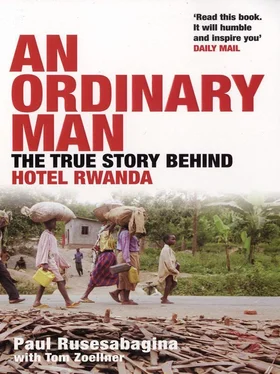

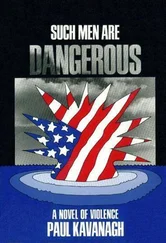
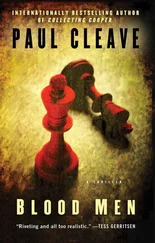
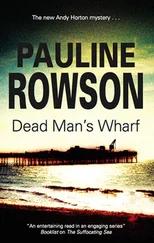

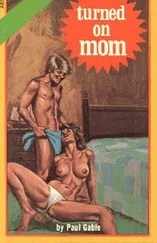

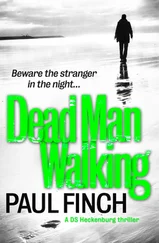


![Paul Finch - A Wanted Man [A PC Heckenburg Short Story]](/books/702381/paul-finch-a-wanted-man-a-pc-heckenburg-short-sto-thumb.webp)
